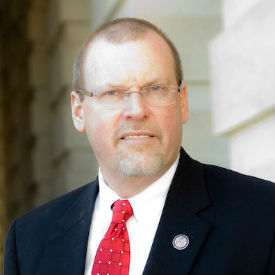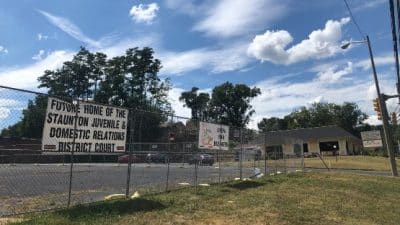
Under the Obama Administration, EPA acted far beyond its statutory authority. As I have noted many times, EPA wrote regulations with little apparent regard for what the law actually permitted it to do or the damage it would inflict on jobs and livelihoods.
While EPA made up rules disconnected from the law, actual laws went unenforced.
You may recall the story of Flint, Michigan, where lead poisoned the city’s water. EPA’s regional administrator had information on lead in the city’s water for months without making it public, even ignoring dire warnings from an EPA field representative who was willing to spend his own money in order to get better data.
Ultimately, a team of Virginia Tech researchers led by professor Dr. Marc Edwards helped bring it to public attention. Their work showed the true scale of lead poisoning in Flint’s water, even as EPA and state officials minimized the problem.
Flint exemplified how EPA had lost its way. As a member of the House Energy and Commerce Committee, which has jurisdiction over EPA, I saw firsthand how the agency forgot its core mission.
But, to paraphrase an American standard song made popular by Dinah Washington, “What a Diff’rence a Year Made.” Under the Trump Administration, the EPA has shown notable progress over the past year in addressing its core tasks of clean water, clean air, and environmental renewal.
As an example, let’s check back in with Dr. Edwards, who was recently awarded a grant of almost $2 million from EPA. The funds will support what he calls, as reported in the Roanoke Times, the “largest engineering citizen-science project in American history.”
With EPA’s grant, Dr. Edwards will apply what he learned in Flint to help other communities that may have water problems. He will also test home kits so others can gauge the purity of what comes out of their faucets. This type of research will identify where we have problems with the nation’s drinking water. It will most likely mean that we will have to spend local, state, and federal dollars to fix the problems discovered. But hopefully, we can solve the problems before they get as bad as Flint, Michigan.
I have also been pleased with developments in EPA’s Brownfields Program, which provides assistance to contaminated areas that are no longer usable.
EPA’s program offers help to communities that want to clean these areas up and make them fit for new economic activity. It’s a boon for economic development and environmental protection.
The Brownfields Program was recently reauthorized for the first time since 2002 based on language crafted by the Energy and Commerce Committee.
EPA recently announced a round of brownfield grants:
- The Alleghany Highlands Economic Development Corporation received $600,000. Among the places they may use the money are Alleghany County, Covington, Clifton Forge, and Iron Gate.
- The Virginia Department of Environmental Quality (DEQ) received $300,000 for Southwestern Virginia, which will be used in Bland, Carroll, Grayson, Smyth and Wythe Counties.
- Virginia Tech received $300,000, which will be spent on environmental assessments in Honaker, Pocahontas, St. Paul, and Appalachia.
- Wise County received $600,000 for properties in the Guest River Watershed.
That’s $1.8 million that will be spent in our communities to assess lands currently in disuse, restore them, and repurpose them.
Similarly, money I obtained for a pilot project is being used by the Office of Surface Mining Reclamation and Enforcement (OSM) to accelerate the cleanup of abandoned mine lands for economic development. I advocated for funding this project, called the AML Pilot Plus Program, and I recently visited a former mine site that would benefit from it in Russell County with DEQ and OSM officials. Other sites like it dot our landscape.
Projects like Dr. Edwards’ work on water quality, redeveloping brownfields and mine lands aren’t flashy. But they will lead to cleaner air, cleaner water, a better environment, and more jobs. That’s what we really need. The EPA is doing its core job. What a difference a year makes.
If you have questions, concerns, or comments, feel free to contact my office. You can call my Abingdon office at 276-525-1405 or my Christiansburg office at 540-381-5671. To reach my office via email, please visit my website at www.morgangriffith.house.gov.










